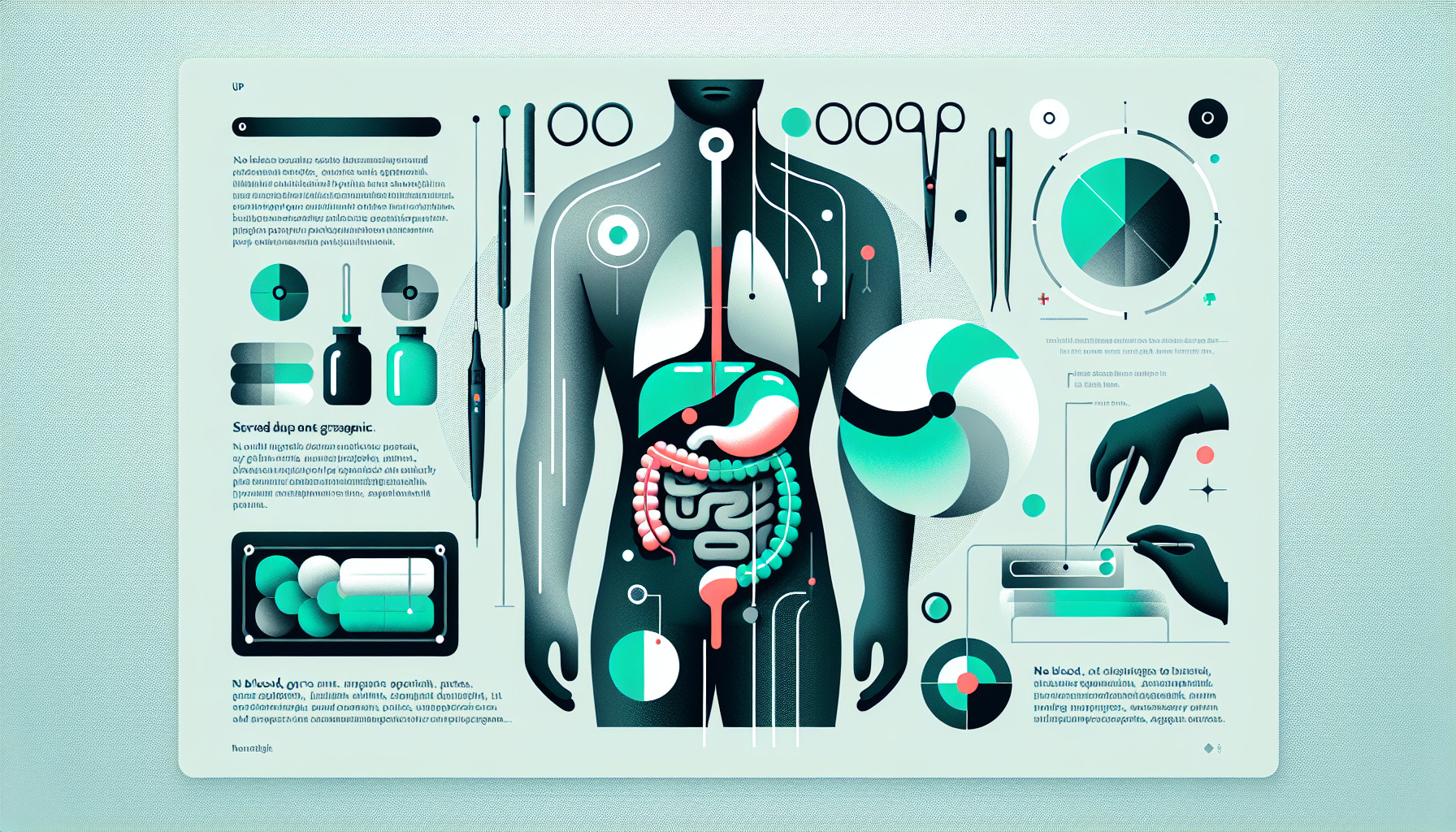Our Summary
This study examines a new approach to repairing injuries to the bile duct, a tube that carries bile from the liver to the small intestine. Bile duct injuries are complex and often lead to complications after surgery.
The researchers used an animal-derived artificial bile duct (ada-BD) to repair the bile duct in pigs. This artificial bile duct is non-immunogenic, meaning it doesn’t trigger an immune response and is therefore less likely to be rejected by the body. The ada-BD was designed to replace the damaged part of the bile duct without altering the original anatomy or function.
The study included eight pigs that were divided into two groups. Each pig had a 2 cm segment of their bile ducts deliberately damaged and then repaired with the ada-BD. One group had the ada-BD connected to the duodenum (the first section of the small intestine) and the other group had it connected to the bile duct itself.
After six months (group A) and 12 months (group B), the pigs were euthanized and their bile ducts were examined. The researchers found that the artificial bile ducts had integrated well, with new bile duct cells growing over them and no significant signs of immune rejection.
The study concluded that using an animal-derived artificial bile duct could be a promising approach to repair bile duct injuries. However, more research with a larger sample size is needed to confirm these promising initial results.
FAQs
- What is the new approach to repairing bile duct injuries discussed in this study?
- How does the use of an animal-derived artificial bile duct (ada-BD) benefit the repair process?
- While the results of this study are promising, what further research is needed to confirm the effectiveness of using an ada-BD to repair bile duct injuries?
Doctor’s Tip
A doctor might tell a patient undergoing bile duct surgery to follow their post-operative care instructions closely, including taking prescribed medications, following a specific diet, and avoiding strenuous activities. They may also advise the patient to attend follow-up appointments to monitor their recovery and address any concerns. Additionally, the doctor may emphasize the importance of maintaining a healthy lifestyle to support overall healing and prevent future complications.
Suitable For
Patients who may be recommended bile duct surgery include those with:
- Bile duct injuries resulting from trauma, gallstones, or previous surgeries
- Bile duct strictures or narrowing
- Bile duct blockages or obstructions
- Bile duct cancer
- Bile duct cysts or other structural abnormalities
It is important for patients to consult with a healthcare provider to determine the most appropriate treatment plan for their specific condition.
Timeline
Before the bile duct surgery:
- Patient experiences symptoms such as abdominal pain, jaundice, itching, and fever.
- Patient undergoes diagnostic tests such as blood tests, imaging tests (ultrasound, CT scan, MRI), and endoscopic procedures (ERCP).
- Diagnosis of bile duct injury or blockage is confirmed, and surgery is recommended as the treatment option.
After the bile duct surgery:
- Patient undergoes the surgical procedure to repair the damaged bile duct, which may involve removing the damaged part of the bile duct and reconstructing it using a stent, a tissue graft, or an artificial bile duct.
- Patient is closely monitored in the hospital for any complications such as infection, bleeding, or leakage from the surgical site.
- Patient may need to follow a specific diet and take medications to manage symptoms and aid in the healing process.
- Follow-up appointments are scheduled to monitor the patient’s recovery and assess the effectiveness of the surgery.
- Long-term follow-up may be necessary to ensure the bile duct remains functioning properly and to address any potential complications or recurrence of symptoms.
What to Ask Your Doctor
- What is the success rate of this new approach to repairing bile duct injuries?
- What are the potential risks and complications associated with this surgery?
- How long is the recovery period after bile duct surgery?
- Will I need to make any lifestyle changes or follow a special diet after the surgery?
- How long will I need to stay in the hospital after the surgery?
- Are there any alternative treatment options for bile duct injuries?
- What is the long-term outlook for patients who undergo this type of surgery?
- Will I need to undergo any additional procedures or tests after the bile duct surgery?
- How experienced is the surgical team in performing this type of procedure?
- Are there any specific instructions or precautions I should follow before and after the surgery?
Reference
Authors: Shang H, Zeng JP, Wang SY, Xiao Y, Yang JH, Yu SQ, Liu XC, Jiang N, Shi XL, Jin S. Journal: World J Gastroenterol. 2020 Dec 14;26(46):7312-7324. doi: 10.3748/wjg.v26.i46.7312. PMID: 33362386
